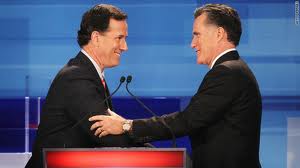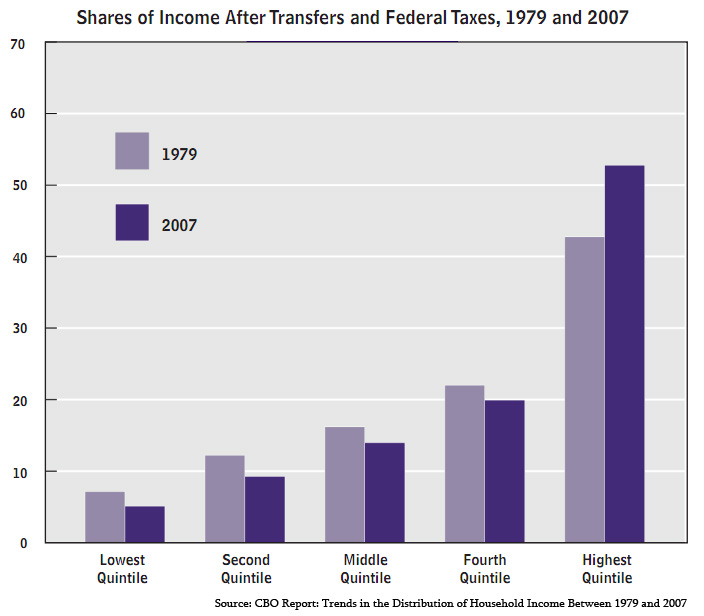 Rick Santorum asked Mitt Romney point blank: “Do you believe people who were felons, who served their time, who exhausted their parole and probation, should be given the right to vote?” This was in response to an ad by Romney’s “Super-PAC” attacking the former Pennsylvania senator.
Rick Santorum asked Mitt Romney point blank: “Do you believe people who were felons, who served their time, who exhausted their parole and probation, should be given the right to vote?” This was in response to an ad by Romney’s “Super-PAC” attacking the former Pennsylvania senator.
The ad says Mr. Santorum voted to “let convicted felons vote” — something the senator says is “explicitly false” because it implies, though it never says, that he wanted felons to be able to vote from jail. The vote Mr. Santorum cast, Senate vote No. 31 in 2002, would have overridden state laws when it comes to federal elections. It would have required them to let felons register to vote once they have completed their prison sentences and any probation or parole.
Romney, at first, beat around the bush. “I don’t believe people who have committee violent crimes should be given their right to vote.”
Santorum retorted that, while Romney was governor of Massachusetts, the law allowed people on probation and parole (including those who committed violent crimes) could in fact vote. And Romney did nothing to fight it.
In fact, until 2000, prisoners in Massachusetts could vote– just as they currently can in Maine and Vermont.
The problem here is about creating and underclass in America, a caste of Americans with no stake in the democracy. A group, millions strong, who are told to pay taxes, abide by the laws, yet have no representation. How can a democracy survive with parents barred from the ballot box? How can such a large group, with further discrimination in employment and housing, be expected to abide by the law? Most of them will, and most do, but this is a credit to people’s basic human instinct to live in peace and harmony. It is not due to political leadership.
Was the Commonwealth of Massachusetts somehow saved when prisoners were barred from participation? Was the state of Rhode Island somehow dismantled when people on probation and parole were granted their voting rights in 2006? I was part of the latter ballot campaign, going so far as drafting the final constitutional amendment… just one year removed from prison, for a violent crime. It is ironic that I move to Louisiana for law school and legally lose my right to vote. It should come as no surprise that I felt much more connected to the democracy, to my responsibilities as a citizen, in the state where I could vote.




